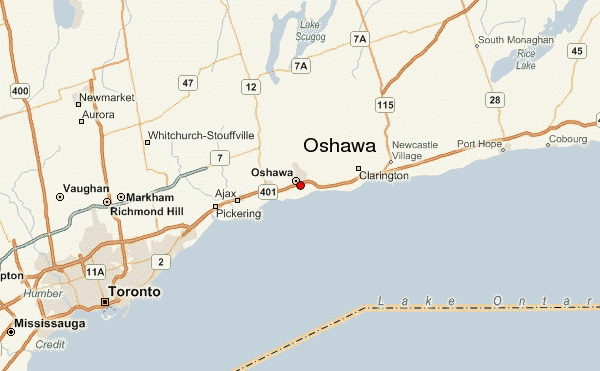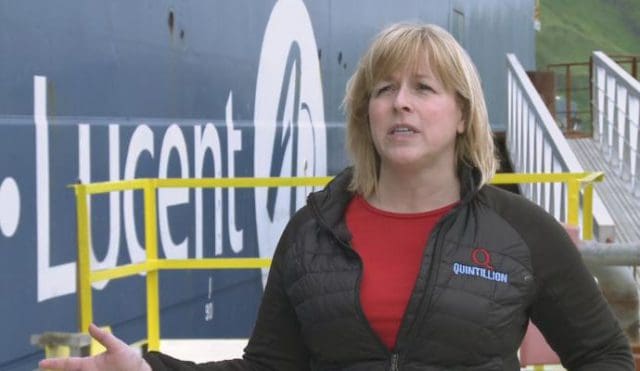 The head of a state-funded group with direct ties to the Massachusetts governor’s office told local officials in New Marlborough that the Massachusetts Broadband Institute (MBI) “believes in cable companies” and is favoring one — Charter Communications, with an exclusive offer to invest millions in taxpayer dollars to entice Charter to bring its Spectrum cable service to town, while telling would-be competitors the money is only available to Charter Communications.
The head of a state-funded group with direct ties to the Massachusetts governor’s office told local officials in New Marlborough that the Massachusetts Broadband Institute (MBI) “believes in cable companies” and is favoring one — Charter Communications, with an exclusive offer to invest millions in taxpayer dollars to entice Charter to bring its Spectrum cable service to town, while telling would-be competitors the money is only available to Charter Communications.
MBI was created in 2008, originally tasked with investing $50 million in state funds to help resolve the digital divide between eastern and western Massachusetts. MBI also manages the publicly owned, middle mile fiber optic network that towns in western Massachusetts are depending on as part of their plans to connect local residents to the internet.
In 2015, MBI suddenly yanked support for WiredWest, the region’s most robust and credible player in connecting residential homes and businesses. The group had spent several years organizing and educating some two dozen largely rural communities, and was well on its way to constructing a public broadband network for the towns that agreed to sign on to the project. Since 2015, a series of political disputes, bureaucracy, and confusion has stalled broadband expansion.
Peter Larkin, MBI’s board chairman, has been roundly criticized in many western Massachusetts communities for continuing MBI’s slow and cumbersome bureaucracy, frequent policy shifts, and most recently playing favorites with cable companies. Ignoring his own organization’s systemic failures and bureaucratic roadblocks, Larkin has recently leveraged community frustration with the slow pace of progress as an excuse to hand two of the nation’s largest cable operators public taxpayer dollars to complete a project MBI was directly responsible for stalling.

Larkin
Under the latest proposal, outlined last Friday, Charter Communications would receive $3.1 million to expand Spectrum cable service to at least 96% of the community of New Marlborough. Originally, the town was responsible for $1.44 million in cost sharing with the state, a substantial sum for a community with a population just over 1,500 residents. Larkin last week offered to split the cost to the town, with the town’s share reduced to $720,000 — payable directly to Charter.
“The state is willing to cut the gap in half to make this project go,” Larkin said.
But that deal appears to be good only if the town selects Charter Communications. Over the last year, MBI has been allocating public taxpayer dollars towards private cable and phone companies, especially Comcast and Charter, to get the companies to agree to expand their cable systems in areas both have ignored for decades. WiredWest’s proposal made towns partners in the project. Larkin’s offer suggests taxpayers should pay up to 50% of the expansion costs, while Charter keeps 100% of the revenue and profits.
In the past, MBI’s financial carrots have been enough to get the two cable companies to expand using state matching funds alone, but as the town’s Broadband Committee Chairman Richard Long told the Berkshire Eagle after the meeting, he thinks this is the first time an unserved town in central or western Massachusetts will have to contribute local taxpayer funds as well just to get service from a cable company.
Larkin’s hard sell for Charter raised eyebrows among some in the town, especially after Larkin offered to use state funds to also finance their $720,000 portion of the deal over as much as a decade. Larkin claimed he wanted to get the project done and wanted to be helpful.
“The state may spend moneys or engage in other activities that benefit or incentivize private businesses in order to promote such [economic] development and it may authorize or partner with its cities and towns to do likewise,” Larkin recently wrote in a letter to towns offering to help them get negotiations going with the cable companies.
 Town resident Dave Travis called Larkin’s offer something else.
Town resident Dave Travis called Larkin’s offer something else.
“Call me a whistleblower, concerned citizen, activist for fairness, justice and democracy, but for Massachusetts Broadband Institute to show such blatant preferential treatment [to Charter] when there are qualified, experienced local options feels like corruption, and it needs some serious daylight,” Travis wrote.
WiredWest’s Tim Newman exposed just how far Larkin was willing to go to bat for Charter.
“Is the generosity you’re presenting to our town on behalf of Charter the same generosity if the town were to build its own network?” he asked Larkin.
“We do believe in the cable companies … we think it’s a value worth leaning in a little bit harder for,” he said, suggesting Charter has the financial ability to complete the project.
“So, the short answer is ‘no’ — the $720,000 would not be available?” Newman pressed.
“No,” Larkin answered.
 Bell today announced it will spend $100 million dollars to expand its all-fiber network to 60,000 homes and businesses in Oshawa, Ont.
Bell today announced it will spend $100 million dollars to expand its all-fiber network to 60,000 homes and businesses in Oshawa, Ont. Bell’s network is currently capable of delivering up to 40 Gbps broadband speed, and is infinitely upgradable to even faster speeds in the future. Residents will be able to subscribe to the new service beginning this fall. New customers will pay $79.95 a month for gigabit speeds for the first year, $149.95 a month after that. A $59.95 installation fee also applies.
Bell’s network is currently capable of delivering up to 40 Gbps broadband speed, and is infinitely upgradable to even faster speeds in the future. Residents will be able to subscribe to the new service beginning this fall. New customers will pay $79.95 a month for gigabit speeds for the first year, $149.95 a month after that. A $59.95 installation fee also applies.

 Subscribe
Subscribe Charter Communications’ takeover of Time Warner Cable and Bright House Networks has not proved popular, according to a new survey from Temkin Group.
Charter Communications’ takeover of Time Warner Cable and Bright House Networks has not proved popular, according to a new survey from Temkin Group. This marks the eighth year Temkin has published its Temkin Experience Ratings, generated from compiling the results of a survey of 10,000 U.S. consumers about their recent interactions with 318 significant U.S. companies. Temkin measures three dimensions of a customer’s experience:
This marks the eighth year Temkin has published its Temkin Experience Ratings, generated from compiling the results of a survey of 10,000 U.S. consumers about their recent interactions with 318 significant U.S. companies. Temkin measures three dimensions of a customer’s experience:
 Golisano’s Grand Oaks LLC of Pittsford, N.Y. promises customers the acquisition will not result in any changes in Greenlight’s rates or its terms and conditions.
Golisano’s Grand Oaks LLC of Pittsford, N.Y. promises customers the acquisition will not result in any changes in Greenlight’s rates or its terms and conditions.
 Pierce’s alleged scheme fell apart when Quintillion began invoicing clients based on the fake contracts. At least one protested, claiming it did not use Quintillion’s network. A subsequent internal investigation allegedly founds dozens of phony contracts kept in Pierce’s Google Drive account, with at least 78 moved to the service’s trash bin 48 hours before investigators began searching Pierce’s computer. Prosecutors were able to recover the deleted documents with a search warrant presented to Google.
Pierce’s alleged scheme fell apart when Quintillion began invoicing clients based on the fake contracts. At least one protested, claiming it did not use Quintillion’s network. A subsequent internal investigation allegedly founds dozens of phony contracts kept in Pierce’s Google Drive account, with at least 78 moved to the service’s trash bin 48 hours before investigators began searching Pierce’s computer. Prosecutors were able to recover the deleted documents with a search warrant presented to Google. The head of a state-funded group with direct ties to the Massachusetts governor’s office told local officials in New Marlborough that the Massachusetts Broadband Institute (MBI) “believes in cable companies” and is favoring one — Charter Communications, with an exclusive offer to invest millions in taxpayer dollars to entice Charter to bring its Spectrum cable service to town, while telling would-be competitors the money is only available to Charter Communications.
The head of a state-funded group with direct ties to the Massachusetts governor’s office told local officials in New Marlborough that the Massachusetts Broadband Institute (MBI) “believes in cable companies” and is favoring one — Charter Communications, with an exclusive offer to invest millions in taxpayer dollars to entice Charter to bring its Spectrum cable service to town, while telling would-be competitors the money is only available to Charter Communications.
 Town resident Dave Travis called Larkin’s offer something else.
Town resident Dave Travis called Larkin’s offer something else.